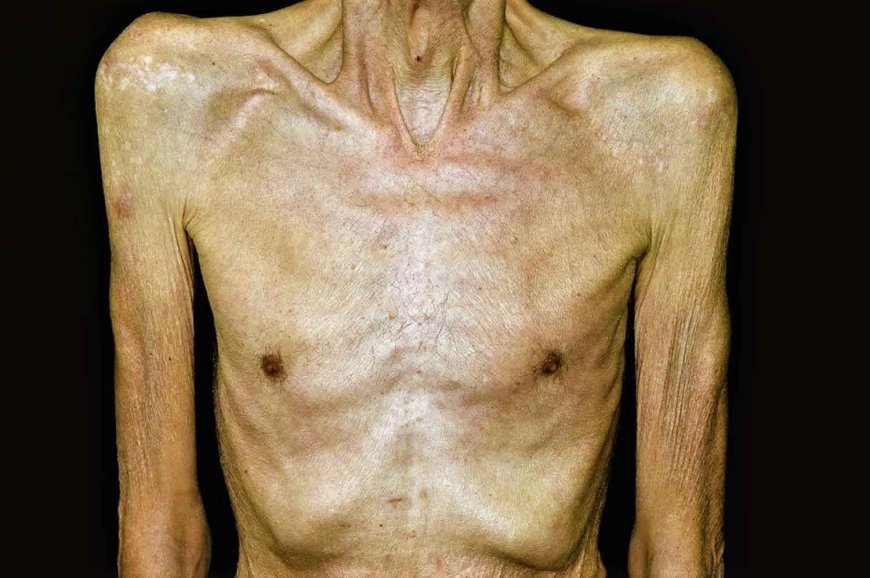Caring for Cancer Warriors: Cancer-related Anorexia/Cachexia Syndrome and Nutrition

Have you ever been tasked with offering palliative care to a cancer patient? If yes, did you for once feel insufficient in your role as a caregiver, or were you well prepared and knowledgeable? The physical and emotional effects of a cancer diagnosis can be extremely overwhelming. But what happens when they also experience anorexia/cachexia syndrome due to their treatment? Today's article will provide insight into identifying the signs and symptoms of cancer-related anorexia/cachexia and nutrition management.
What is Cancer-Related Anorexia/Cachexia Syndrome?
Cancer-related anorexia/cachexia syndrome (CACS) is a multifaceted condition characterized by weight loss, anorexia, and cachexia. It is a common complication in cancer patients, occurring in up to 80% of those with advanced disease. While the exact cause is unknown, it is thought to result from a complex interplay between tumour-derived factors and the host's response to the tumour. Regardless of its cause, CACS can significantly impact a patient's quality of life and prognosis.
Causes
The exact cause of CACS has yet to be fully elucidated. It is thought to be due to a combination of several factors. Anorexia and weight loss can be attributed to reduced energy intake, increased resting energy expenditure, muscle protein breakdown and lipolysis. In many cases, this may be related to an inflammatory response to the tumour caused by cytokines (such as tumour necrosis factor-alpha, interleukin 6, and IL-1 beta); which interferes with nutrient metabolism. Cancer can also cause the syndrome by interfering with the body's ability to absorb nutrients. Other potential causes include treatment-related side effects like nausea and vomiting, changes in taste and smell, mouth sores, and digestive problems. Psychological factors such as depression, anxiety, and body image issues can also contribute to the development of anorexia/cachexia syndrome. Unlike starvation, weight loss in cancer tends to come from muscle mass and fat loss.
Signs and symptoms
Weight loss is the most prominent symptom of CACS and can range from 5-10% of body weight in early stages to over 30% in advanced disease. Patients may also experience progressive loss of appetite, fatigue, muscle wasting, weakness, and gastrointestinal symptoms such as nausea and diarrhoea.
Diagnosis
There are no specific tests for diagnosing CACS. A combination of physical examination, medical history, and laboratory tests will be used to rule out other conditions that could be causing weight loss. Imaging tests may also be used to assess the extent of muscle loss. Once diagnosed, treatment focuses on managing the underlying causes and symptoms.
Assessment of Nutrition status
Nutrition status and weight loss should be carefully evaluated for all cancer patients. A detailed history should be taken to determine any risks resulting in poor nutrition intake, such as factors compromising the ability to eat or utilize nutrients from food. Physical examinations should also be done to detect visible signs of subcutaneous fat loss, muscle wasting around the temporal, quadriceps or deltoid regions, sacral or ankle oedema, or ascites. The most commonly used objective measures of nutritional status are the serial measurement of body weight and the assessment of dietary intake. Personal information on nutritional status can be provided by nutritional assessment tools. Laboratory measures of nutritional status (e.g., albumin, transferrin) are rarely needed to assess nutritional status. However, some screening tools (e.g., the Nutrition Risk Index) include serum albumin measurement.
Nutrition Therapy
Nutrition therapy is often an essential part of treatment and may include changes in diet, supplements, and enteral or parenteral nutrition.
Healthy foods help slow down or stop weight loss by preserving lean body mass. Second, it can improve the patient's appetite and help them to eat more. Third, it can reduce fatigue and give the patient more energy. Fourth, it can enable the patient's immune system to function better. Fifth, it can reduce chemotherapy side effects such as nausea and vomiting. Sixth, it can improve the patient's mood and overall well-being.
Managing nutrition in patients with CACS requires a multimodal approach. The patient should work with their doctor, dietitian, and other healthcare team members to develop an individualized plan that meets their unique individual needs. A registered dietitian can work with you to develop a plan that meets your specific needs and goals. Contact us for support; our team will assist you with an individualized diet plan.
Summary
Management of cancer-related cachexia anorexia syndrome requires a multimodal approach. It is good to work hand in hand with a registered dietitian who will tailor a diet plan to meet specific energy requirements per individual needs.







